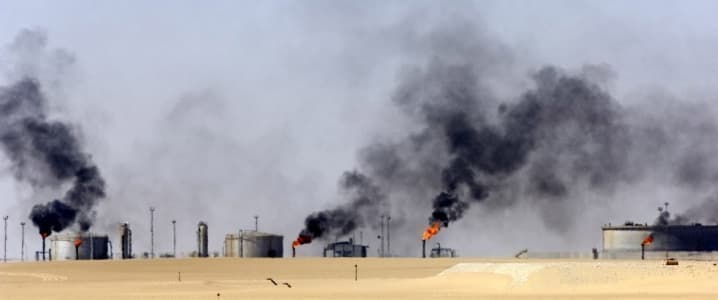Libya’s volatile production and exports may inadvertently help OPEC and its allies in supply restrictions these days, after the Libyan National Oil Corporation (NOC) has declared force majeure on crude oil loadings of an export grade fed by an oilfield which was shut down last Thursday.
According to six industry sources familiar with the issue who spoke to Reuters, NOC has declared force majeure on the Mellitah crude blend loadings, following the closure of the 73,000-barrels-per-day El Feel oilfield.
The oilfield was shut down last week due to an unlawful closure of a valve on the export pipeline from El Feel field to Mellitah, NOC said.
El Feel—which NOC and Italy’s oil and gas major Eni operate in a joint venture—is one of the streams of the Mellitah crude blend, the other being condensate from the Wafa oilfield.
Last week’s interruption of El Feel production was the second shutdown of operations at the oilfield in two weeks.
El Feel field was shut down on November 27 due to airstrikes, after the eastern-based Libyan National Army (LNA), led by Khalifa Haftar, retaliated after forces loyal to the UN-backed Libyan government in Tripoli allegedly took control of the oilfield in the southwest.
A day later, military activity at the field stopped and production resumed, NOC said on November 28, with NOC chairman Mustafa Sanalla noting that Libyan oilfields are vital sources of revenues for the country and that the fields “must not be treated as military targets.”
Libya’s oil production was volatile in the spring and summer after Haftar—whose forces control most of Libya’s oilfields—ordered in early April his Libyan National Army to march on the capital Tripoli.
Two outages at the biggest oil field, Sharara, in one month forced Libya’s oil production down to below 1 million bpd in the first week of August—the lowest level in five months.
Libya’s production stabilized and even increased in September and October—to 1.16 million bpd and 1.167 million bpd, respectively, according to OPEC’s figures.
Yet, Libya is exempted from the OPEC+ production cuts due to its fragile security situation.
By Tsvetana Paraskova for Oilprice.com
More Top Reads From Oilprice.com:
- The Danger Of Deeper OPEC+ Cuts
- Forget The Hype, Aramco Shares May be Valued At Zero Next Year
- Iran: We Won’t Agree To Any Production Cuts In The Future

















